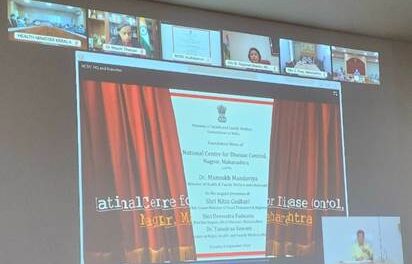A groundbreaking study from Curtin University suggests that exposure to outdoor air pollution and extreme temperatures during pregnancy may increase the likelihood of prolonged pregnancy, shedding light on the impact of climate change on maternal health.
The research, published in Urban Climate under the title “Maternal climate-related exposures and prolonged pregnancy: Findings from a statewide population-based cohort study in Western Australia,” analyzed data from nearly 400,000 births in the region. The findings reveal a significant correlation between prolonged pregnancies—lasting beyond 41 weeks—and increased exposure to fine particulate air pollution (PM2.5) and biothermal stress, a metric combining air temperature, radiant temperature, humidity, wind speed, and human physiological responses.
New Insights into Climate and Pregnancy
Lead author Dr. Sylvester Dodzi Nyadanu from Curtin’s School of Population Health emphasized that while climate exposure has long been associated with preterm births, this study is the first to examine its effect on prolonged pregnancies.
“We know that being ‘born too soon’—preterm birth—has well-documented health risks, but little attention has been given to the risks associated with being ‘born too late,'” Dr. Nyadanu said.
According to the study, certain groups were more vulnerable to these effects, including mothers over 35, first-time mothers, those residing in urban areas, and individuals with complicated pregnancies. The researchers attribute this phenomenon to environmental stressors disrupting maternal endocrine and inflammatory activities, leading to variations in gestational length.
Health Risks for Mother and Child
Dr. Nyadanu warned that prolonged pregnancies can pose serious health risks, necessitating medical interventions such as labor induction or cesarean sections. Additionally, these pregnancies may increase the likelihood of stillbirth, birth complications, child mortality, and early childhood behavioral and emotional issues.
“With climate change driving more frequent extreme weather events and worsening air quality, it is essential that we recognize the potential impacts on maternal and child health,” Dr. Nyadanu added. “Health care providers, policymakers, and pregnant women—particularly those in vulnerable groups—must consider climate-related exposures when assessing pregnancy risks and planning interventions.”
Call for Policy Action
The study underscores the urgent need for targeted policies and preventative measures to mitigate climate-related health risks. Recommendations include strengthening air quality regulations, improving access to prenatal healthcare, and implementing public health initiatives to safeguard expectant mothers from extreme climatic conditions.
“This research highlights the necessity of proactive intervention strategies to protect maternal and child health in the face of climate change,” Dr. Nyadanu concluded.
Disclaimer
This article is based on findings from a scientific study and does not constitute medical advice. Pregnant individuals should consult their healthcare providers for personalized guidance regarding pregnancy and environmental exposures.












